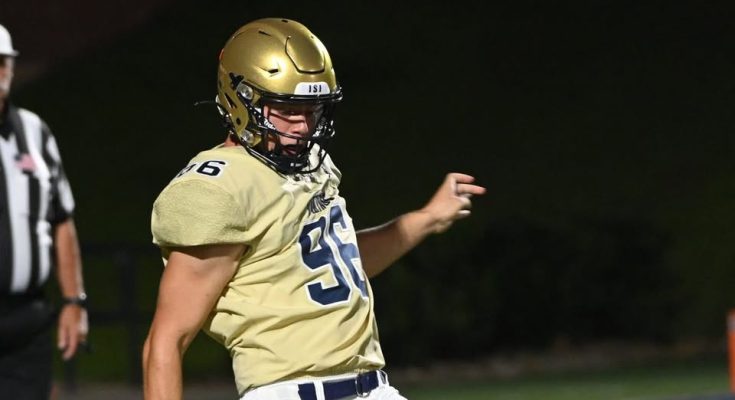The atmosphere at South Carolina’s Fellowship of Christian Athletes (FCA) football camp was supposed to be one of growth, camaraderie, and character development. Hosted as part of an annual summer tradition, these camps are usually about much more than football—they are about forging deeper relationships, cultivating leadership, and nurturing faith alongside athletic skill. However, for one student-athlete and his family, the most recent event ended not in personal triumph or spiritual enrichment, but in trauma, fear, and an urgent call for accountability. A reported incident of physical assault has now cast a heavy cloud over the camp and raised difficult questions about safety, supervision, and institutional responsibility.
According to sources close to the situation, a high school student-athlete attending the FCA football camp in South Carolina was violently beaten by fellow attendees during a period of unstructured time. The details are harrowing. The student was allegedly cornered and assaulted in what some witnesses have described as an unprovoked and brutal group attack. Multiple students were involved, and the injured athlete suffered visible bruises and injuries severe enough to warrant medical attention. While specific medical details have not been fully disclosed for privacy reasons, the family of the victim has confirmed that their son is recovering at home, both physically and emotionally shaken.
What makes the incident even more troubling is the setting in which it occurred. The FCA football camp, endorsed by several local high schools and community churches, had long been considered a safe and uplifting environment—one where student-athletes could gather without fear of violence. The event, designed to blend athletic training with faith-based mentorship, now finds itself at the center of controversy. Parents, educators, and members of the religious community have expressed both shock and outrage, demanding answers and a full investigation into how such an incident could unfold under adult supervision.
Camp organizers have issued a carefully worded statement acknowledging the situation while emphasizing their commitment to student safety. “The Fellowship of Christian Athletes is aware of a recent incident at one of our South Carolina football camps involving a serious altercation between student participants,” the statement read. “We are cooperating fully with the local school district and law enforcement authorities to understand exactly what occurred. Our prayers are with the student and family affected by this event. We remain committed to fostering a safe and spiritually enriching environment for all attendees.”
However, that statement has not satisfied many in the community, particularly those who believe the incident reflects deeper systemic issues. Several parents whose children attended the same camp have since come forward with concerns about a lack of adequate supervision, particularly during evening and free-time activities. One parent, speaking anonymously, said that while the camp promoted accountability and Christian values, the adult-to-student ratio was insufficient for the number of participants. “There were moments when it felt like the kids were policing themselves,” the parent said. “It only takes a few minutes without adult eyes for something terrible to happen. And now it has.”
The incident has also reignited conversations about hazing, bullying, and toxic peer dynamics in youth sports environments—issues that often go unspoken, particularly in settings where character and morality are presumed to be central pillars. While the FCA camp’s stated values include integrity, serving others, and humility, the reality on the ground appears to have diverged from these ideals in tragic fashion.
The local school district affiliated with several of the student-athletes involved has launched an independent review and confirmed that disciplinary actions will be taken if misconduct is verified. “We are aware of the serious allegations stemming from the FCA football camp and are treating this matter with the utmost gravity,” said the superintendent in a press release. “Any student found to have participated in this assault will face consequences in accordance with district policy. Our highest priority is the safety and well-being of our students.”
For the family of the injured student, however, no institutional response can undo the trauma their child endured. In an emotional interview with local media, the boy’s mother described receiving a call that every parent dreads. “When I heard what happened, I couldn’t breathe,” she said. “You send your child to a Christian camp thinking they’ll be cared for, supported, and protected. Instead, I got a phone call saying he’d been beaten by other kids. He was alone, terrified, and bleeding. I just want to know how this happened. I want to make sure no other parent ever has to go through this.”
The family has also retained legal counsel and is considering potential civil action against both the FCA and any responsible parties at the camp. Their lawyer issued a statement demanding transparency and accountability from all organizations involved. “This is not just a case of bullying—it is a case of aggravated assault that took place under the watch of an organization entrusted with the care of minors,” the statement read. “We will be exploring every legal option to hold all negligent parties accountable for this grave failure in supervision and protection.”
The ripple effects of the incident have begun to manifest across the state, with other FCA chapters and affiliated schools reevaluating their policies for student supervision during camps and retreats. Athletic directors and coaches, many of whom support FCA’s mission, have expressed concern that a lack of procedural safeguards could expose students to unnecessary risk. Some have called for mandatory staff training in crisis intervention, bullying prevention, and de-escalation tactics. Others are questioning whether high-contact sports camps, even with a faith-based mission, should continue to operate without the same oversight required of school-run athletic programs.
At the heart of the issue is a profound tension between the stated ideals of FCA—fellowship, faith, and personal growth—and the real-world conditions under which their events are sometimes conducted. When those ideals fail to translate into tangible safeguards, the results can be catastrophic. For the student who was beaten, the experience will likely leave emotional scars that extend far beyond the bruises. For his family, trust in the systems meant to protect their son has been shattered. For the broader community, the challenge now lies in confronting uncomfortable truths and ensuring that meaningful reforms are enacted.
In the days following the incident, social media has become a battleground of competing narratives. Some former FCA campers have expressed support for the organization, describing their own positive experiences and urging the public not to judge the entire institution based on a single event. Others have criticized what they perceive as a pattern of silence and institutional defensiveness whenever allegations of misconduct arise. One former camp counselor tweeted, “The mission is good, but the execution is broken. Until they fix their culture of denial, this won’t be the last time something like this happens.”
The issue has also attracted attention from state lawmakers, one of whom has called for a formal investigation into the practices of all youth sports camps operating in South Carolina. “We have a responsibility to ensure that when children are sent to summer programs, they are protected by more than good intentions and vague codes of conduct,” said the legislator during a televised town hall. “We need oversight, transparency, and enforceable standards.”
The long-term implications of the incident remain to be seen, but one thing is already clear: the illusion of guaranteed safety in spiritually branded youth programs has been shattered. This event has exposed the fact that even in environments cloaked in moral language and good intentions, human failures can and do occur. And when they do, the consequences are often borne most heavily by the vulnerable—children who come seeking growth and instead encounter violence.
The student at the center of the storm is now back home, recovering surrounded by family and close friends. Those who know him say he’s a quiet, determined young man who didn’t provoke the assault and who had no prior history of behavioral issues. His coaches have described him as a team player, someone who worked hard and set an example on and off the field. That such a student could become the victim of a group attack under adult supervision has rattled many in his school community and raised difficult questions about what truly goes on when the spotlight fades and the games end.
As more details continue to emerge and the investigations proceed, the eyes of parents, educators, lawmakers, and faith leaders will be closely watching what actions are taken—not only to address this particular case but to ensure systemic change moving forward. Because for every child who attends a sports camp, especially one grounded in values of faith and character, there is an unspoken contract of trust. That trust has been broken, and it will take more than words to repair it.
In the wake of this incident, the message to organizations like FCA must be clear: faith alone cannot substitute for safety protocols, accountability structures, and rigorous adult supervision. No mission statement, however noble, can protect a child from harm unless it is matched by action. The tragedy at this South Carolina camp serves as a stark reminder that vigilance, transparency, and a commitment to real-world safety must accompany even the most virtuous ideals. Otherwise, the very places meant to uplift and inspire our youth risk becoming the source of their deepest wounds.



